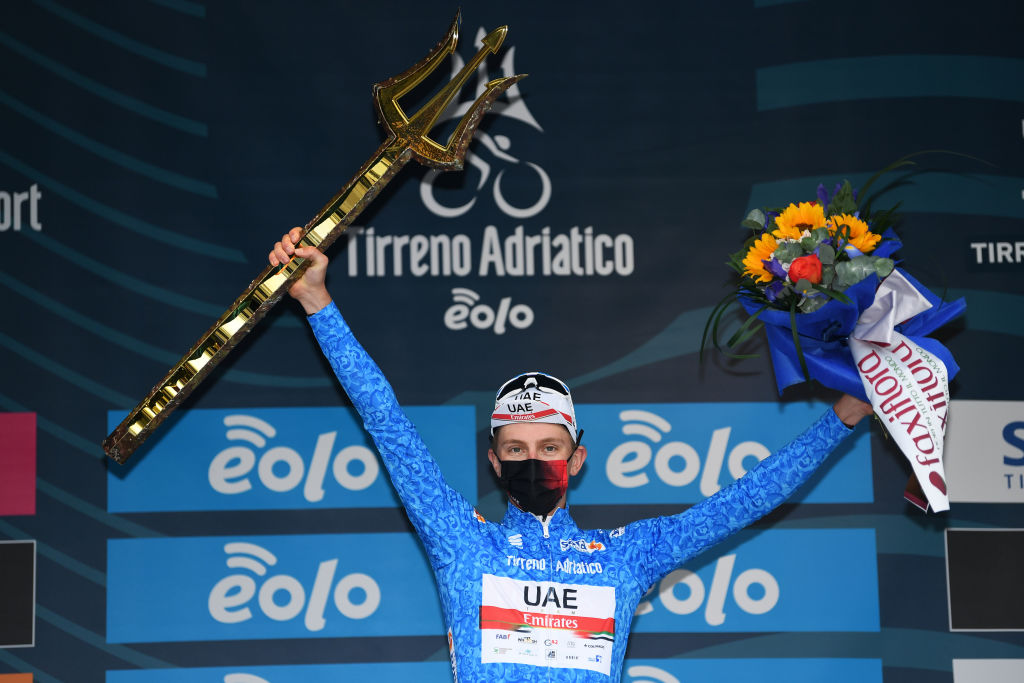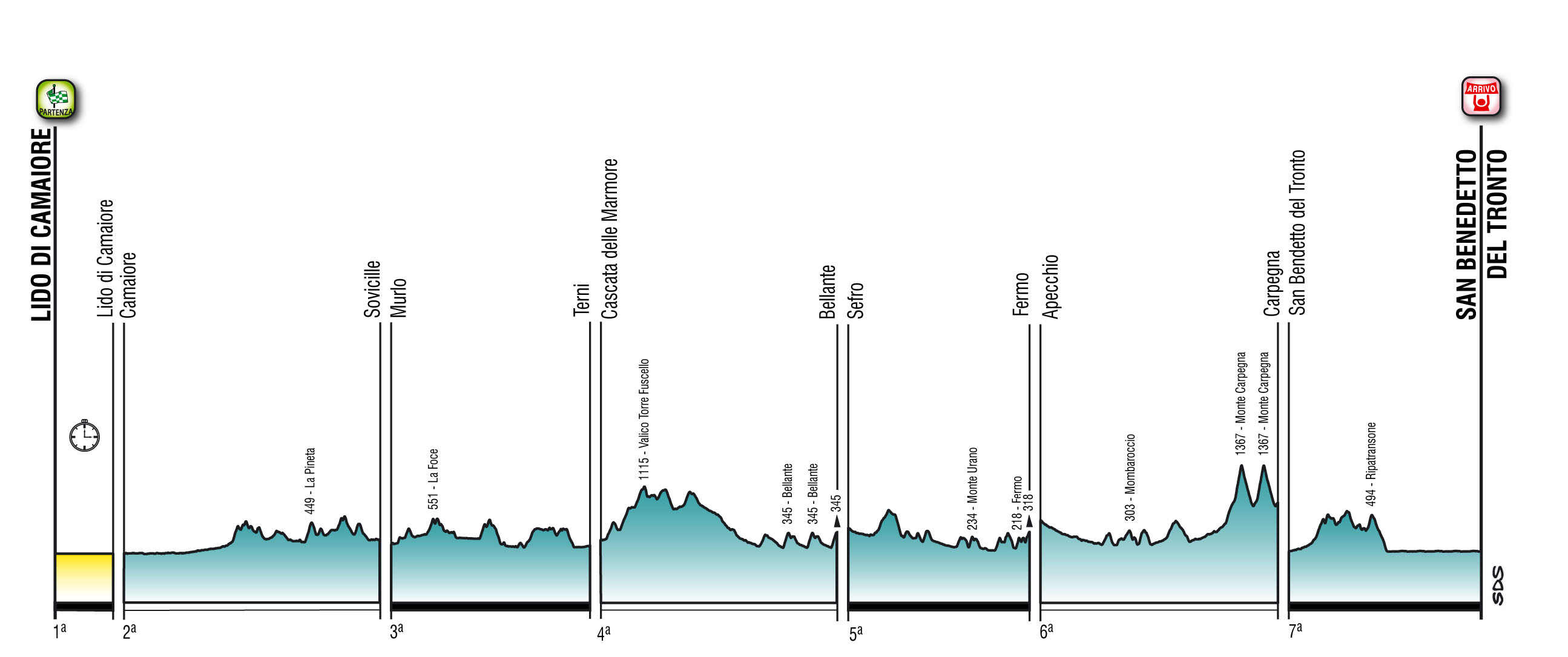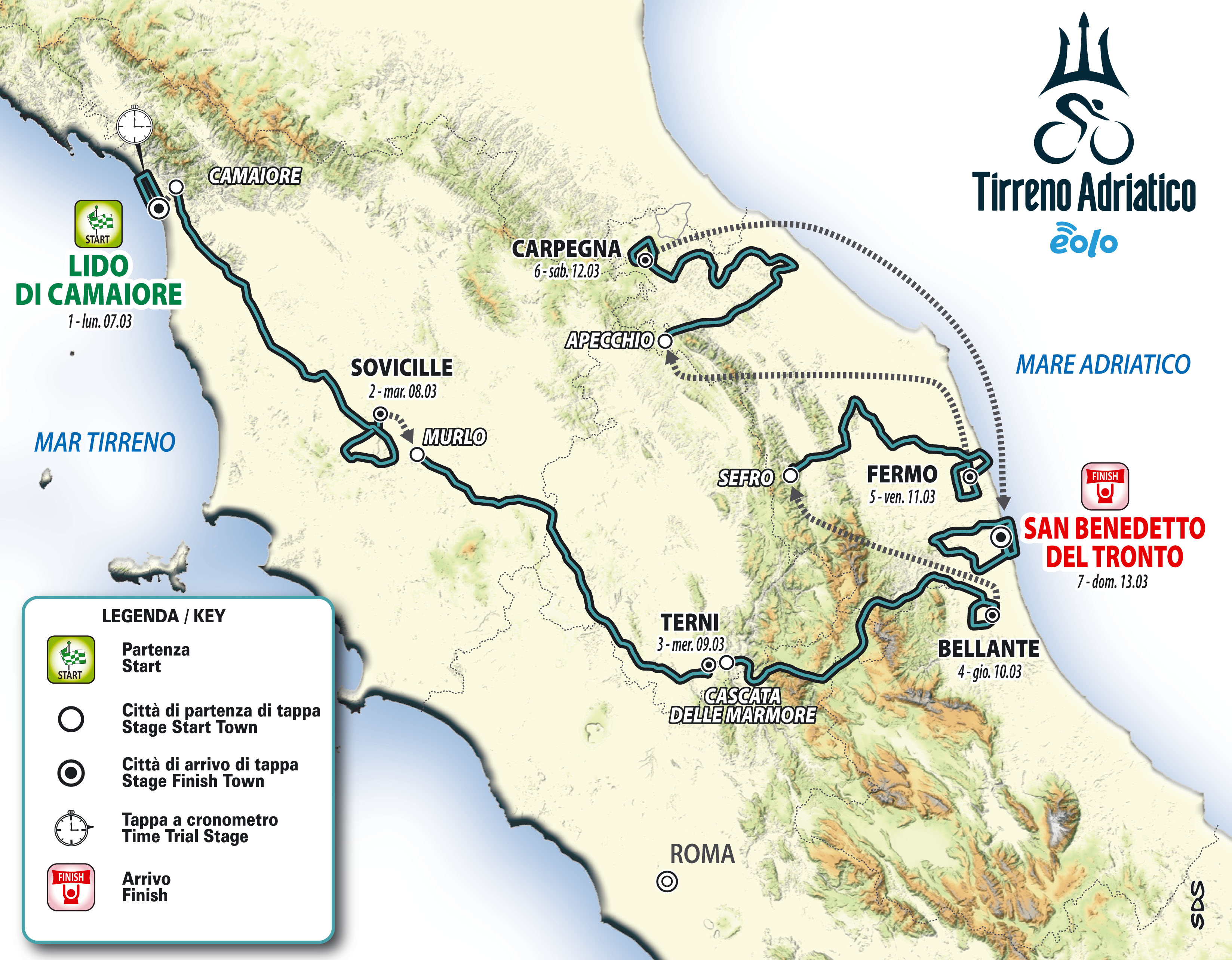Pantani's favourite climb set to decide new-look Tirreno-Adriatico
Time trial moved to opening day as Italian stage race finishes on a Sunday

The 2022 Tirreno-Adriatico has a new date and a new route, with the Italian stage race ending on Sunday March 13, the same day as Paris-Nice, with a road stage replacing the traditional final time trial along the seafront of San Benedetto del Tronto.
The change in dates is likely to impact how riders prepare for Milan-San Remo, with Milano-Torino moved to Wednesday March 16 as a final race before La Classicissima on Saturday March 19.
Tirreno-Adriatico will start on Monday March 7 in Lido di Camaiore on the Tyrrhenian coast two days after Strade Bianche on the dirt roads of Tuscany. The seven days of racing begin with an out-and-back 13.9km individual time trial along the seafront, covering the roads that have been used in recent years.
There is no mountain finish in this year’s Tirreno-Adriatico, but Mauro Vegni, the director of RCS Sport, explained that the route includes 14,000 metres of climbing during the 1131km of racing. Three stages are over 200km, with opportunities for the sprinters and for attacks on the step climbs in Umbria and Le Marche.
After the opening time trial, the race route goes deep into Tuscany to Sovicille near Siena, crosses into Umbria for a finish in Terni, and then heads towards the coast for steep hill-top finishes in Bellante and Fermo.
The route jumps north for the 213km key mountain stage, which climbs the steep six-kilometre Monte Carpegna twice. It is the climb where Marco Pantani used to train and test his form and includes two testing descents, the last to the finish line in Carpegna.
"I don’t need to train in the high mountains, the Carpegna is enough for me," Pantani once famously said.
Get The Leadout Newsletter
The latest race content, interviews, features, reviews and expert buying guides, direct to your inbox!
Monte Carpegna is only six kilometres long but twists upwards at an average gradient of 10 per cent. The last two kilometres have a gradient of around 12 per cent.
The final road stage includes five laps of a flat circuit along the San Benedetto del Tronto seafront, creating a crowd-pleasing last chance for the sprinters to show their Milan-San Remo form.
The new route means that time bonuses and the double ascent of Monte Carpegna will likely decide the overall winner rather than the time trial, as per tradition.
RCS Sport hinted that 2021 winner Tadej Pogačar (UAE Team Emirates), world champion Julian Alaphilippe and teammate Remco Evenepoel (QuickStep-AlphaVinyl), Peter Sagan (TotalEnergies), and Vincenzo Nibali (Astana-Qazaqstan) would all ride the Italian race rather than Paris-Nice.

"For the first time, Tirreno-Adriatico will finish on a Sunday, so that the public can come out and see the race during the weekend," Vegni explained.
"We’ll also show off the short climbs and stunning villages of central Italy more. We’ve experimented with the high mountains and steep climbs in recent years but I believe Tirreno-Adriatico is better when raced over the rolling hills and short climbs of central Italy.
"There’s no mountain-top finish but the stages will be hard, especially the Monte Carpegna stage, with around 14,000 metres of climbing during the race. We’ve rarely had that much climbing in the past, even when there were mountain stages. It should be a real test for everyone; the sprinters will have to fight for a chance to win the early stages, while the time bonuses will be vital in deciding the final overall winner."
Cyclingnews will have full live coverage of Tirreno-Adriatico, with news, interviews and reaction.


Stephen is one of the most experienced member of the Cyclingnews team, having reported on professional cycling since 1994. He has been Head of News at Cyclingnews since 2022, before which he held the position of European editor since 2012 and previously worked for Reuters, Shift Active Media, and CyclingWeekly, among other publications.